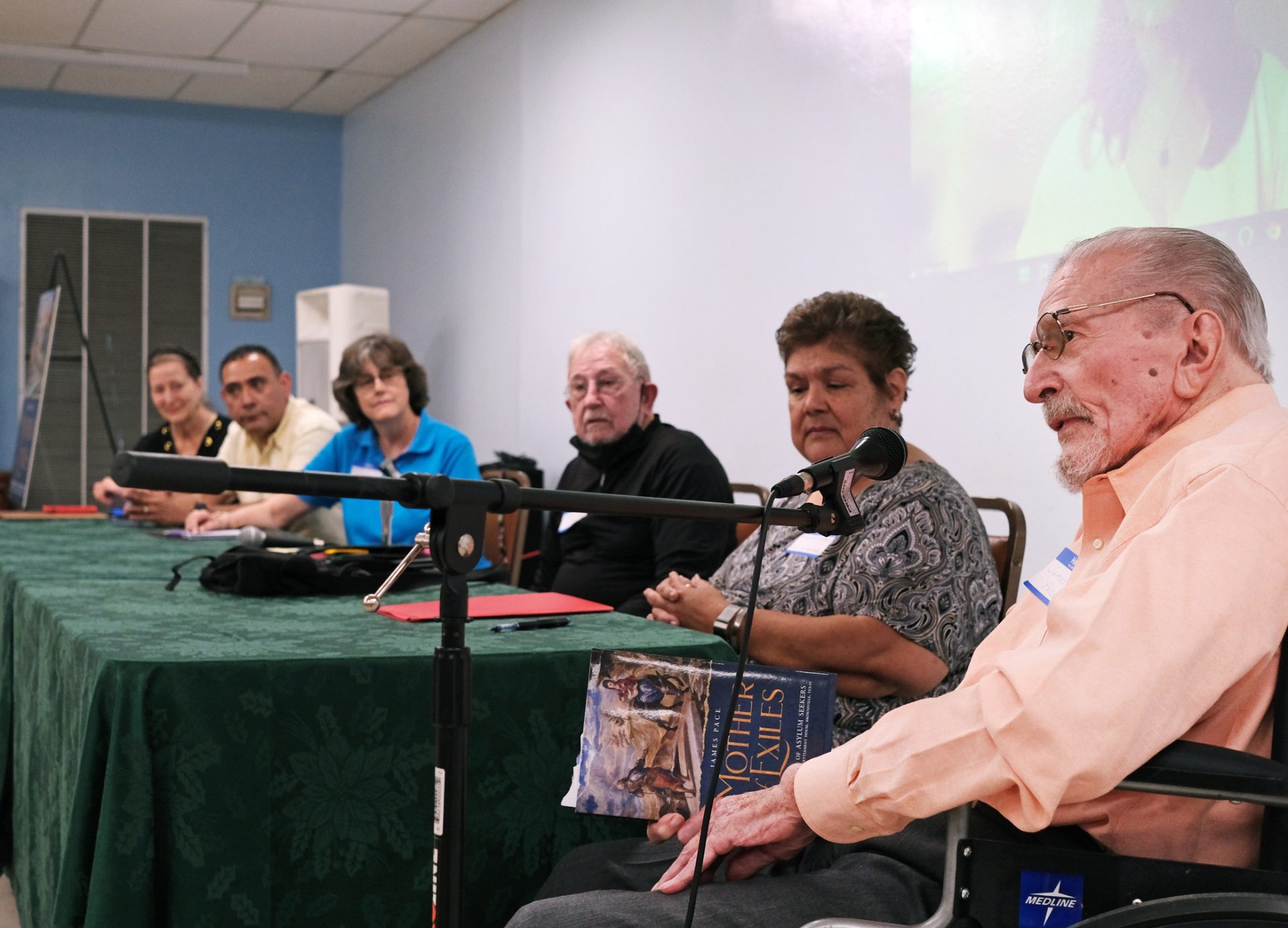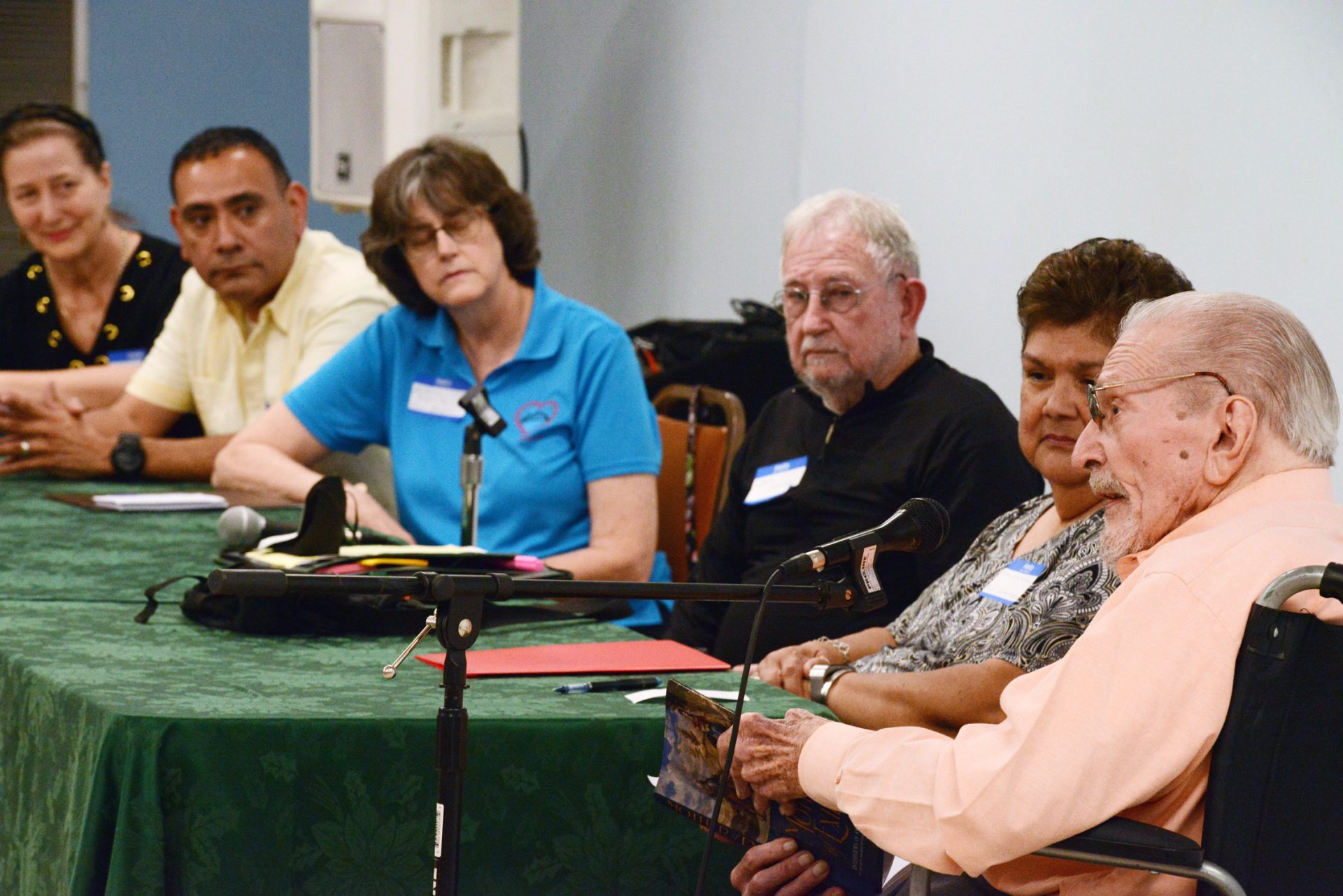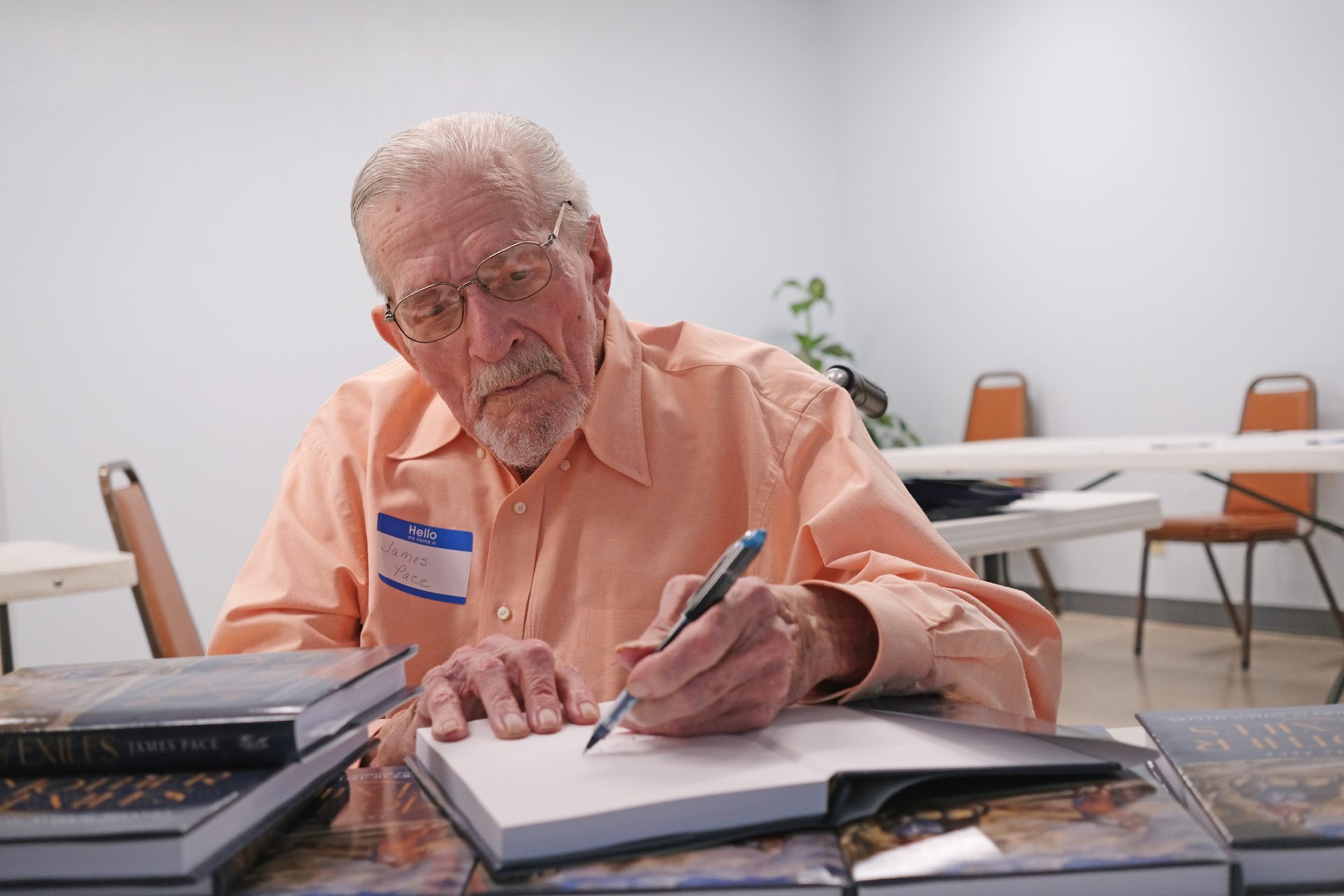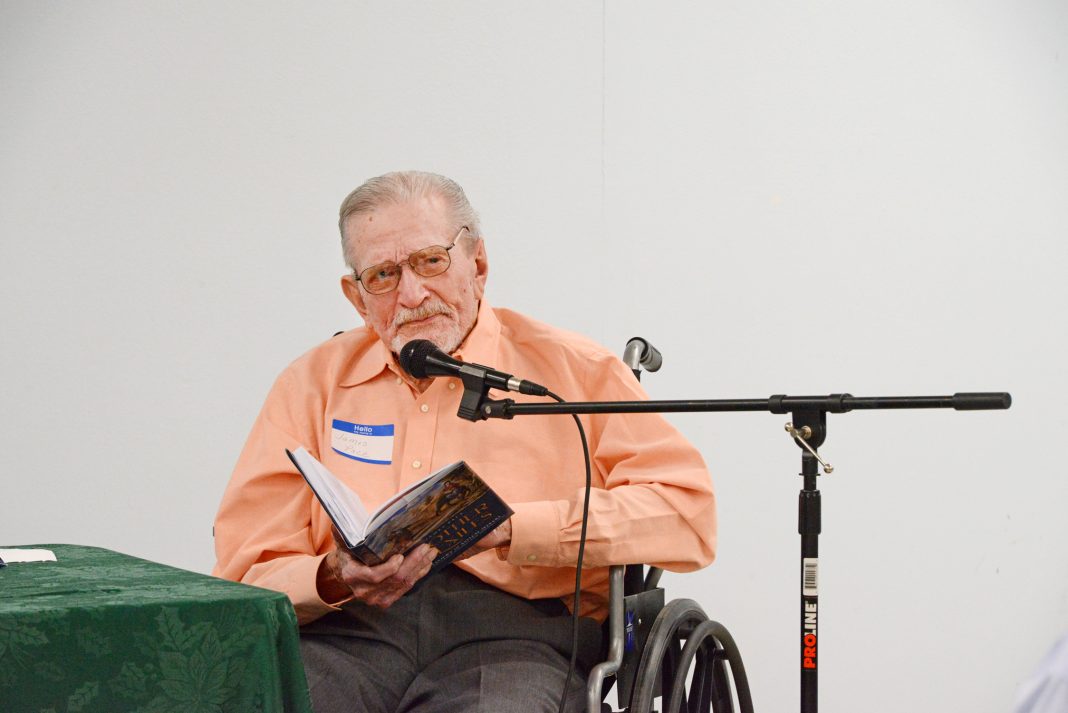Team Brownsville, the group of Good Neighbor Settlement House humanitarians who rose up to meet the crush of asylum seekers arriving in Brownsville and welcome them with dignity in 2018-2019, is celebrating James Pace’s new book that tells the refugees’ stories.
Pace, 91, a Methodist missionary and son of the James Pace for whom Pace Early College High School is named, was part of Team Brownsville when the volunteer group joined forces to help the asylum seekers, who were being dropped off hundreds at a time at the Brownsville bus station.
Eventually, U.S. Customs and Border Protection realized Team Brownsville was serious about helping the refugees and started dropping them off at the Good Neighbor Settlement House, where until then Team Brownsville had been taking them and where they got to shower, were given meals and received travel packs with water, nonperishable food and other necessities for their journey north to join family and sponsors.
It was summer 2018. Pace and other Team Brownsville members would arrive, first at the bus station and later at GNSH, at 5:30 a.m., the time Border Patrol was dropping off the refugees. Pace was always first to arrive, fellow team members said at a news conference Wednesday to announce the book’s release.

Similar volunteer efforts were taking place at Sister Norma Pimentel’s Humanitarian Respite Center in McAllen through Catholic Charities of the Rio Grande Valley, in San Benito at La Posada Provedencia, in Brownsville at the Ozanam Center and Iglesia Bautista West Brownsville, and across the Rio Grande Valley, as thousands and thousands of refugees arrived in the Valley, the book also recounts.
“Mother of Exiles: Interviews of Asylum Seekers at the Good Neighbor Settlement House” is Pace’s first book. It is a series of 85 interviews Pace conducted with asylum seekers from Bangladesh, Cameroon, Cuba, Ecuador, El Salvador, Guatemala, Honduras, Mexico, Nicaragua and Venezuela.
The one thing the refugees had in common was that they were running for their lives, Pace tells Sarah Towle, an educator, historian, human rights defender and author, in the book’s introduction.
“Some are ‘traditional’ asylum seekers, fleeing political persecution, or economic migrants fleeing hardship. But in this last decade, the majority of asylum seekers from Central America and parts of Mexico are victims of torture, rape, incessant gang death threats, and extortion,” Pace tells Towle.
“They are prime targets for human trafficking. They come in fear. Indeed, scores of asylum seekers forced to return to their home countries by the U.S. Government have been killed shortly after their return,” Pace tells her.

Towle, who joined the Brownsville news conference virtually, tells of one asylum seeker, 15, who found herself and her baby being driven to Ciudad Victoria during the Trump administration’s agenda of “deterrence by cruelty.”
She knew they were going the wrong direction and demanded he turn around, emptying her purse of about $100 and convincing him to take her to the bridge in Matamoros.
“But what of the numerous youngsters who don’t have the resources for a bribe,” Marinela Ramirez Watson, another Team Brownsville member, asked. “Are they condemned to be sex slaves?”
The book tells the other side of the immigration story, calling into question the labels, stereotypes and myths used by anti-immigrant forces to justify policies such as family separation and Remain in Mexico, or MPP.
“To some, this young mother and her infant child are criminals and drug dealers coming for your jobs. They are ‘aliens’ and ‘illegals’ and ‘lazy cheaters’ who failed to migrate ‘the right way,’ not the resourceful 15-year-old running away from her abuser and toward a better future,” Towle writes in the introduction.
Pace interviewed hundreds of asylum seekers and refugees as they passed through GNSH in the fall and winter of 2018 and 2019, transcribed and translated the interviews himself and eventually narrowed the group to 85 for the book.
“When I approach an asylum seeker I smile and say, Welcome brother, Welcome sister, as I extend to them my hand. I tell them I wish to capture their stories of their experiences — in their homeland, on their journey north and what happened to them on arrival at the border — in order to acquaint U.S. citizens about what they’ve really been through. I tell them I have already interviewed many others from their countries of origin: Honduras, El Salvador, Guatemala, Nicaragua, as well as Cuba and parts of Mexico.”
Each chapter is prefaced with a quotation from scripture, the first, titled “Freedom,” from John 8:31-36, where Jesus tells his disciples that if they follow his teachings the truth will set them free.

Pace writes that he, Jack White, then the GNSH interim director who organized Team Brownsville, and White’s wife Virginia, are sitting in the Brownsville bus station at 5:30 a.m. waiting for the first group of asylum seekers to be dropped off from the Port Isabel Detention Center.
“At that time we did not know the director of the detention center ran it like a federal prison and the inmates were treated like felons.
“Consequently the asylum seekers on the bus had their hands shackled and their legs in leg irons. It required extra time to remove all the restraints before they were released to us,” causing them to be 15 to 20 minutes late to the ticket counter.
“We welcomed them … letting them know we were volunteers ready to serve them. We loaned them our personal cell phones to call family and friends living in the U.S. … informed them that they were in Brownsville, Texas, so they could reassure relatives and friends from their final destination,” Pace writes of the largely unwelcome Refugee Respite Program.
“We then gave them a backpack filled with a blanket, clothes, a personal hygiene kit and a bottle of water plus a plastic kit with nonperishable food for the bus trip.” Pace writes.
The first story, ‘I’m free! I’m Free! is so titled because just before the bus departs a Cuban man faces White, who tells him, “Congratulations.”
“I noticed his eyes begin to moisten and then when we shook hands, the Cuban took a step backward. With tears falling down his cheeks, and a smile spreading across his face, he raised his hands and shouted,
“I’m free! I’m Free!”





